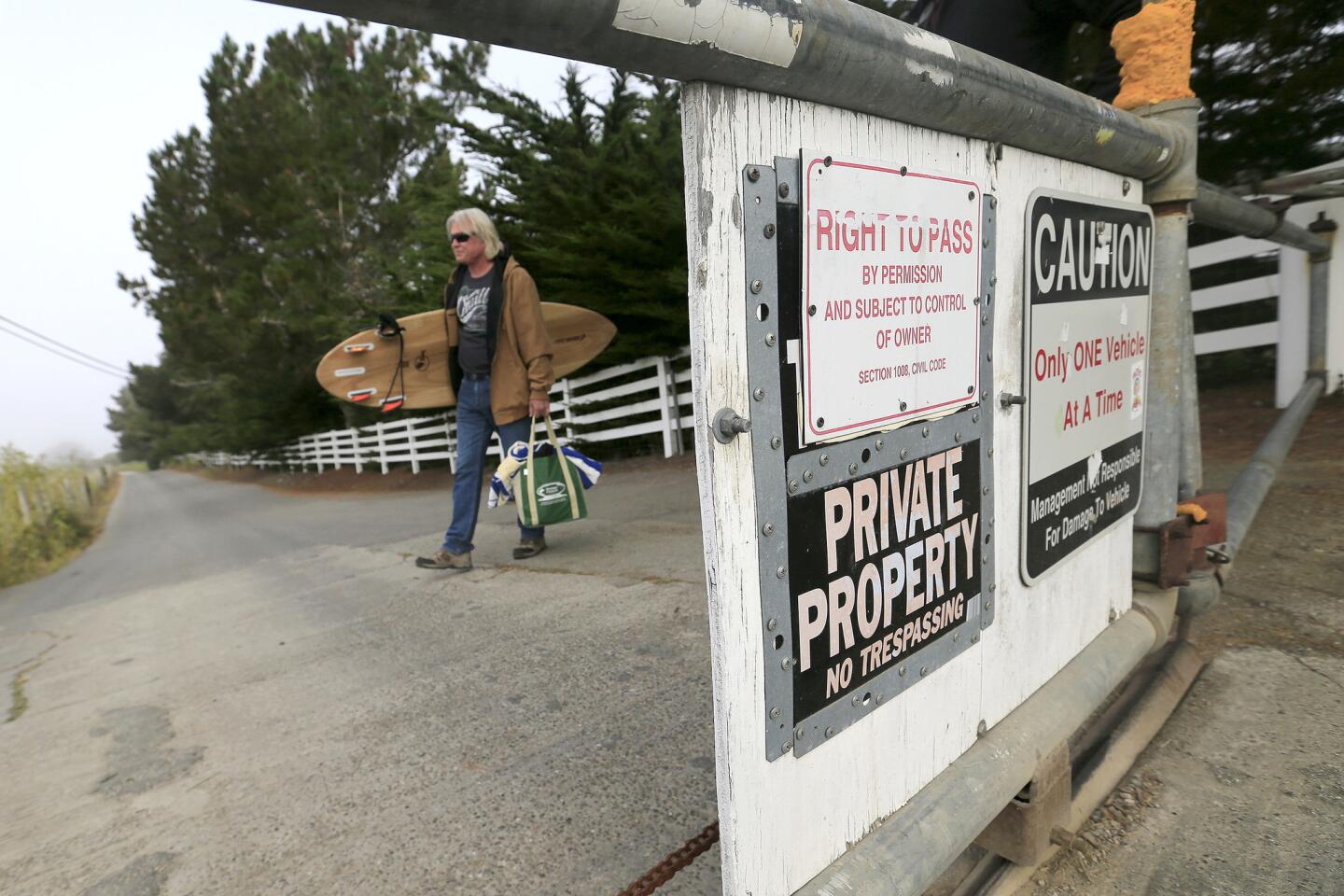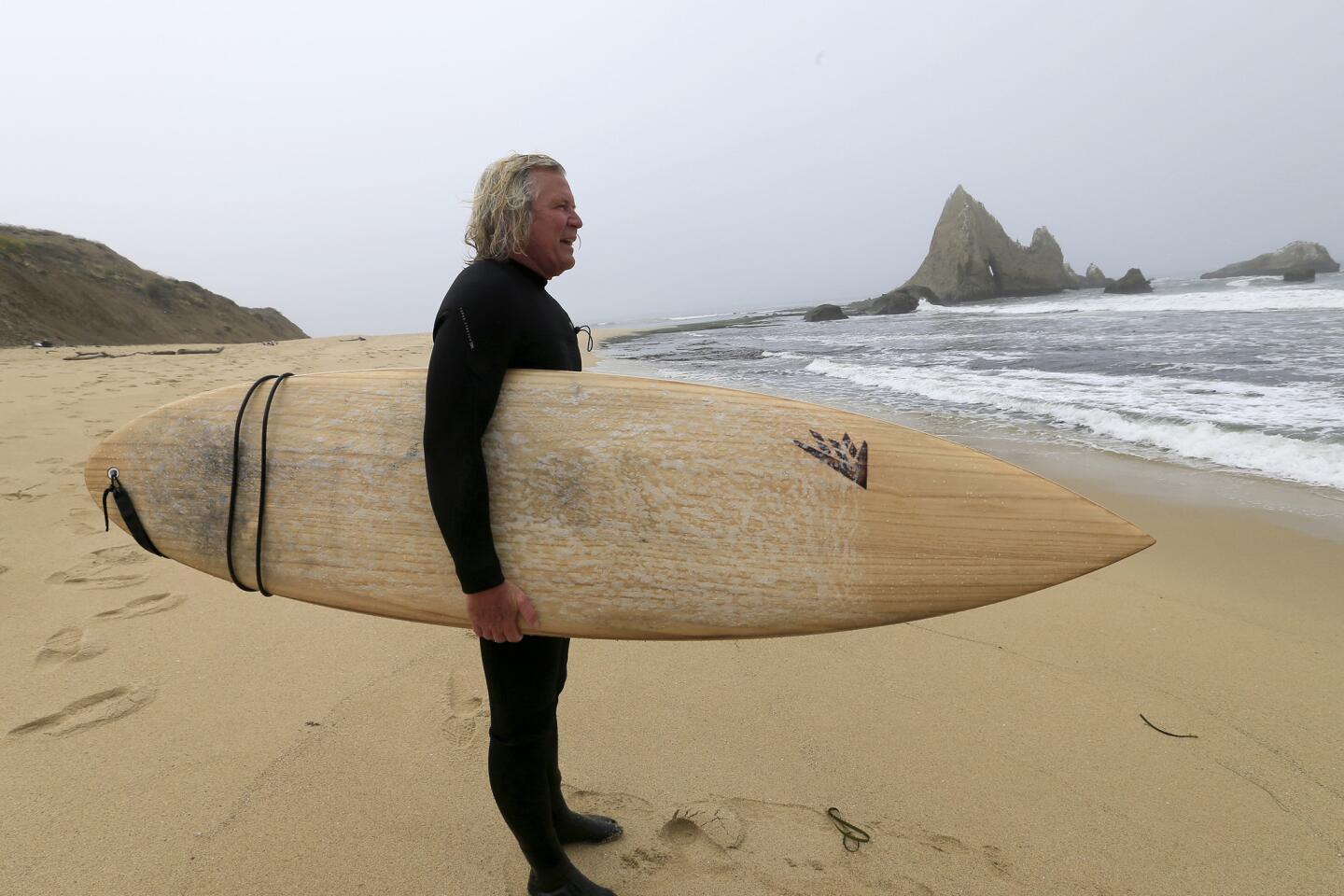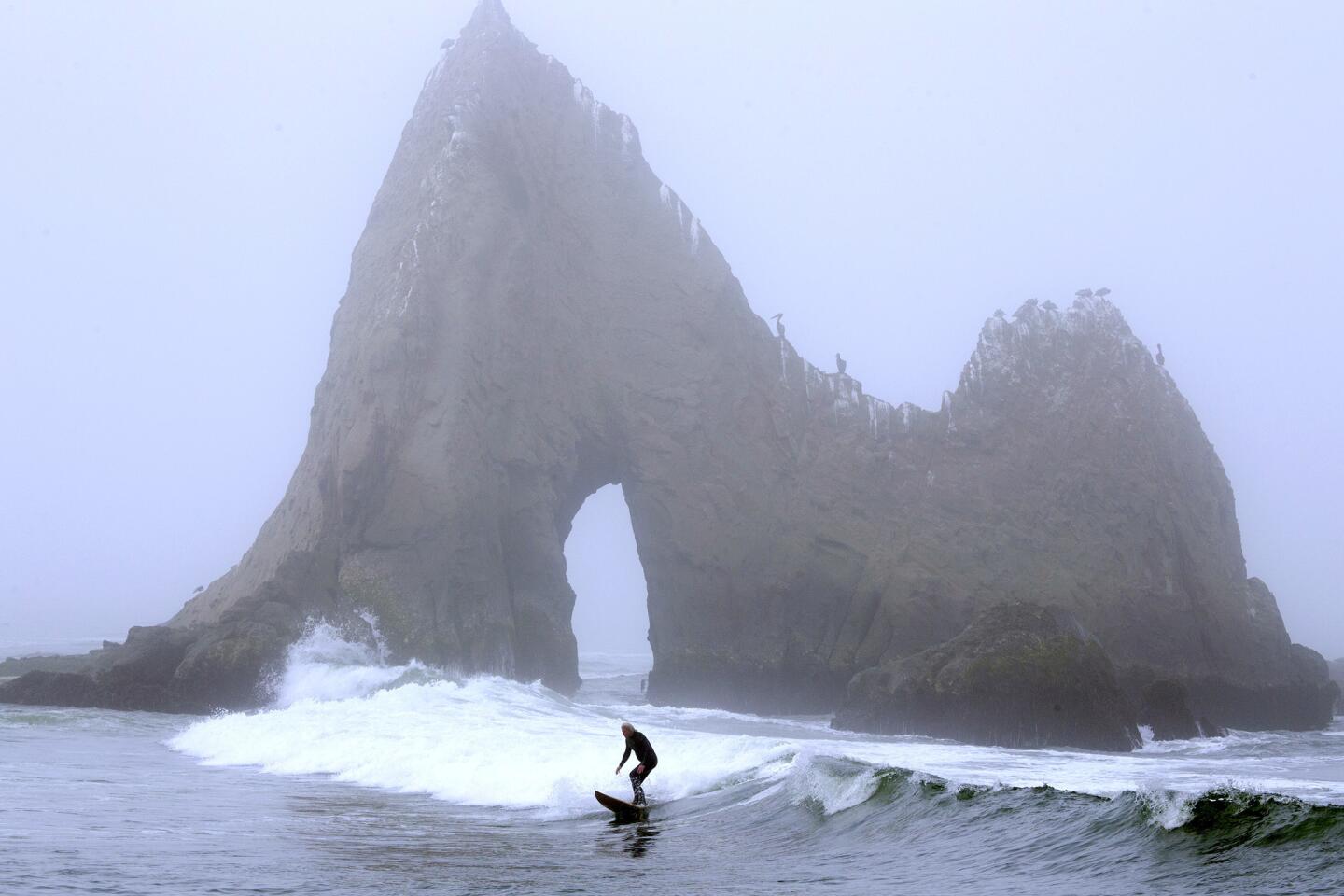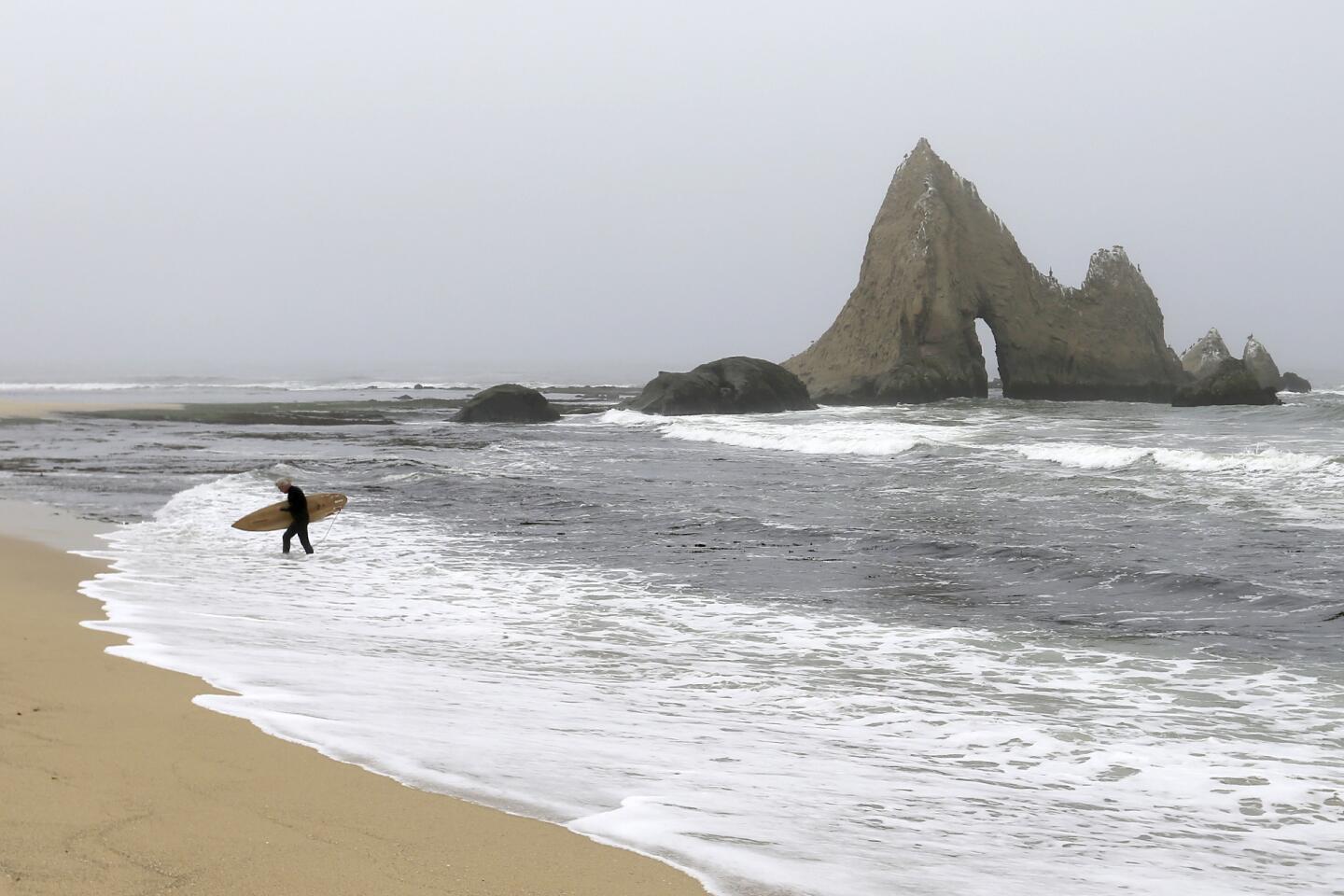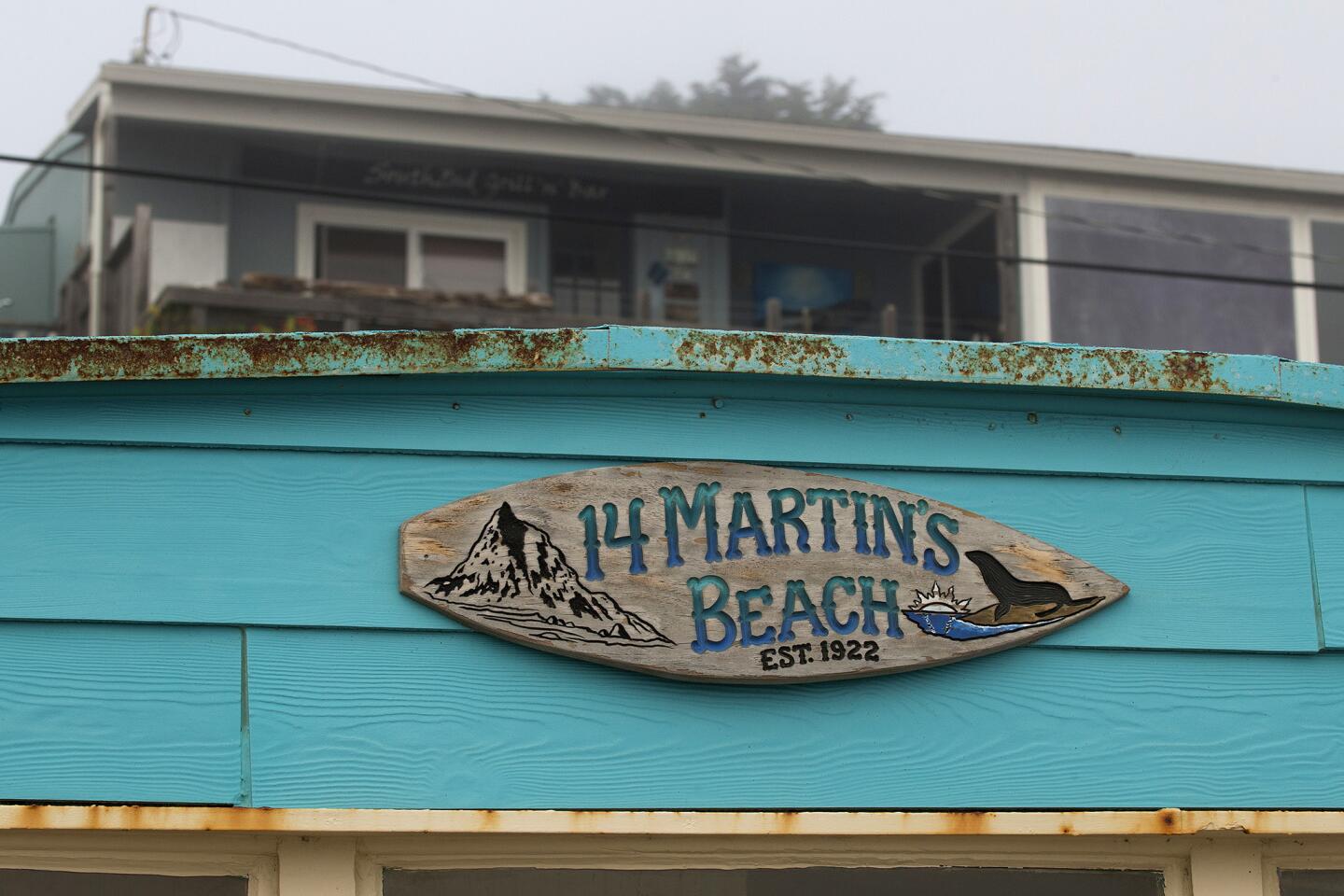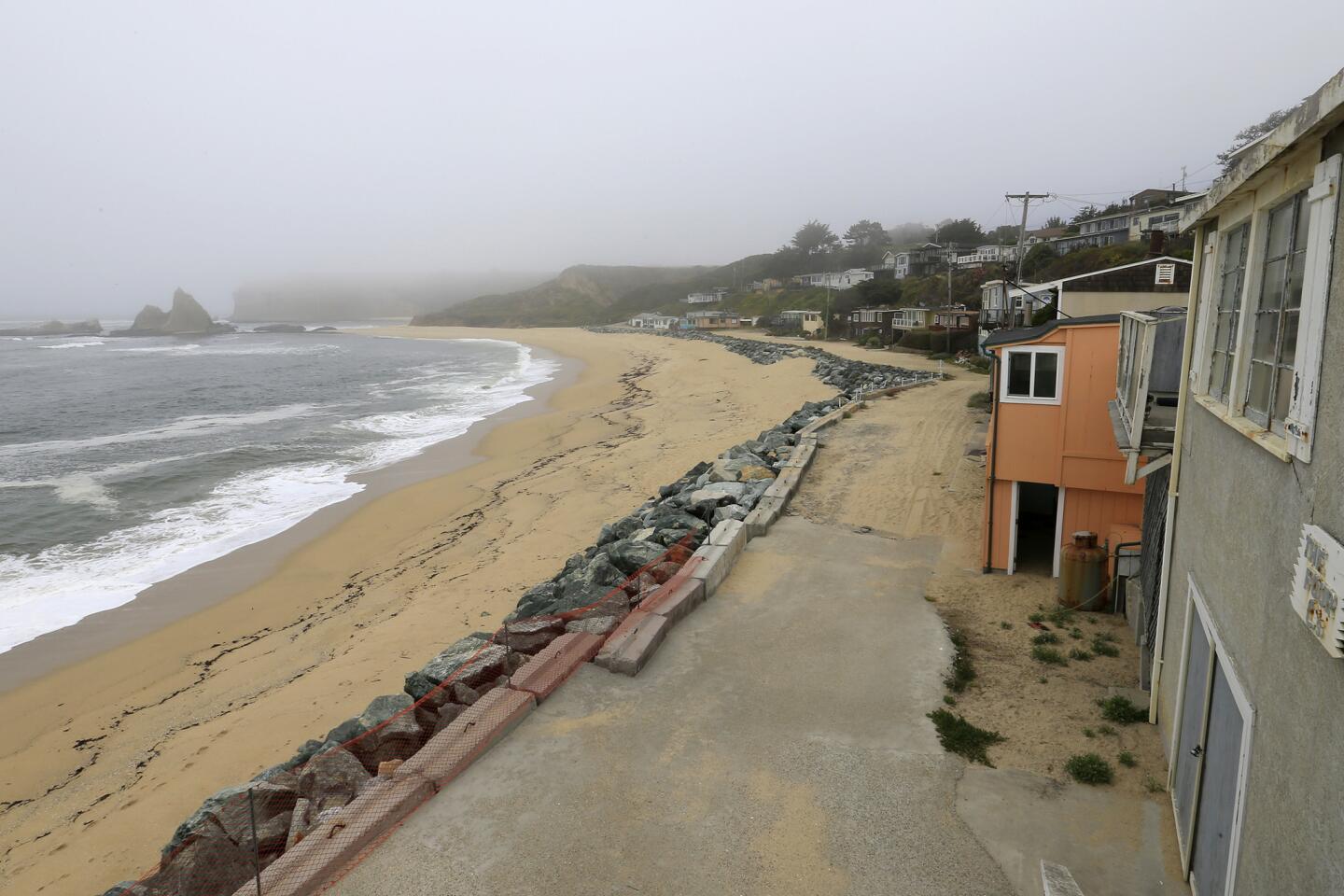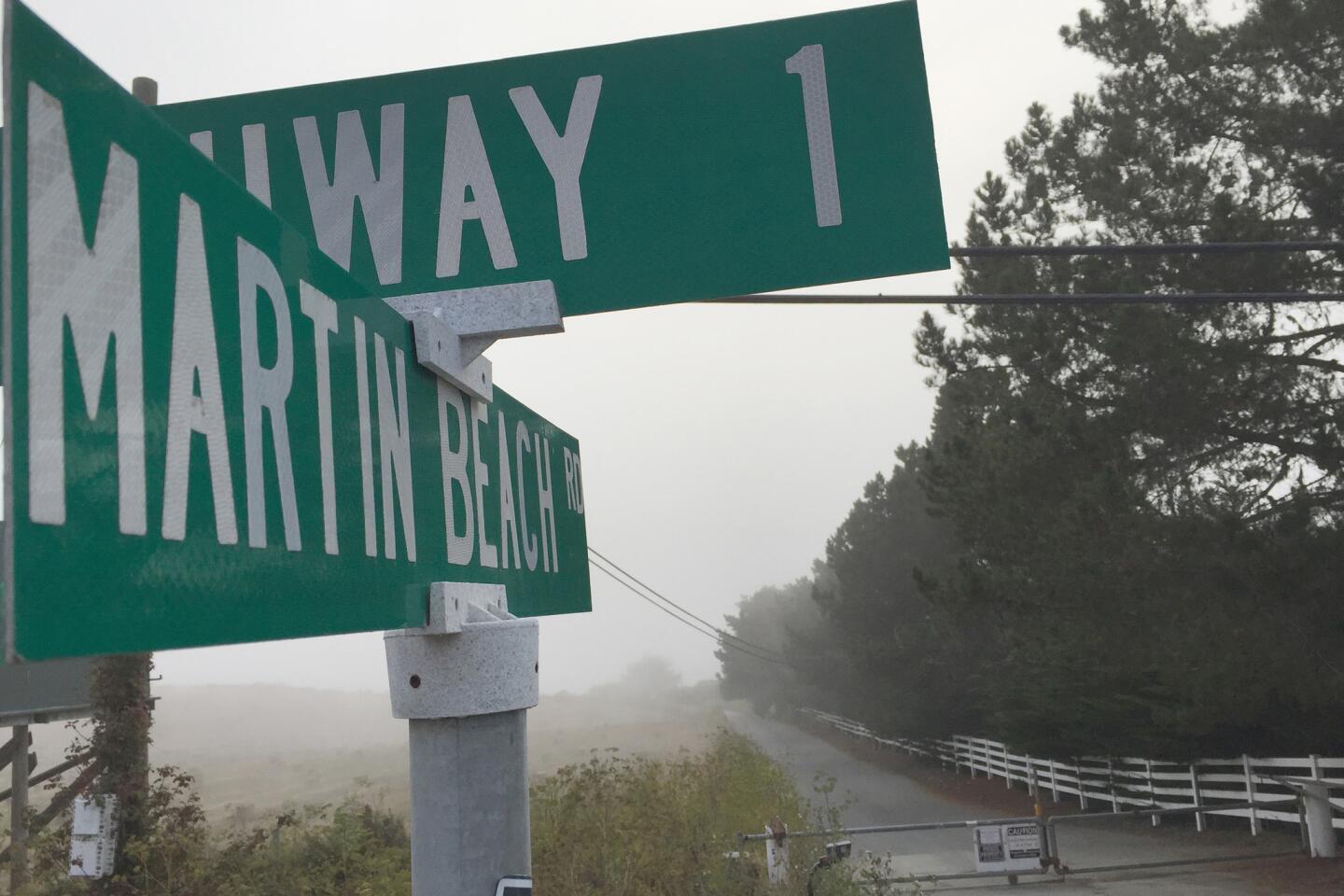With Supreme Court challenge, tech billionaire could dismantle beach access rights — and a landmark coastal law
- Share via
The California Coastal Act for decades has scaled back mega-hotels, protected wetlands and, above all, declared that access to the beach was a fundamental right guaranteed to everyone.
But that very principle could be dismantled in the latest chapter of an all-out legal battle that began as a local dispute over a locked gate.
On one side, property owner and Silicon Valley billionaire Vinod Khosla wants Martins Beach, a secluded crescent-shaped stretch of sand and bluffs, to himself. On the other, generations of beachgoers demand continued access to a path long used by the public. The squabble has spurred a spate of lawsuits that now focus on whether Khosla needs state permission to gate off the road — and a string of California courts has said he does.
Unwilling to back down, Khosla is now appealing to the U.S. Supreme Court over his right to shut out the public. His latest argument not only challenges the constitutionality of the Coastal Act — if taken up by the nation’s highest court, it would put into question long-established land use procedures and any state’s power to regulate development anywhere.
“It’s bold, it’s arrogant, it wants to strike at the core of our society,” said Joe Cotchett, lead attorney for the Surfrider Foundation, which sued Khosla in its fight for public coastal access. “This is so much bigger than a little beach in San Mateo County. It’s a steppingstone to every coastline in the United States.”
A billionaire is willing to bring back public access to Martins Beach — for a price »
Khosla, not short on money nor shy on tactics, has tapped a new lawyer uniquely suited to overcome the longshot odds of bringing this argument before the nation’s nine top justices. Now leading his legal team is Paul Clement, who served as U.S. solicitor general under President George W. Bush, has clerked for the late Justice Antonin Scalia and “argued more Supreme Court cases since 2000 than any lawyer in or out of government,” according to his professional bio at Kirkland & Ellis LLP.
He has defended a number of conservative positions, such as arguing against same-sex marriage and leading the legal challenge against President Obama’s Affordable Care Act.
In his 151-page petition to the Supreme Court, Clement described California’s coastal policies as “Orwellian” and made the case that private property should not be taken for public use without just compensation: “the Coastal Act cannot constitutionally be applied to compel uncompensated physical invasions of private property.”
Clement and Khosla’s team of Bay Area lawyers did not respond to requests for comment. Khosla declined to comment for this article.
The Supreme Court will probably decide in the next three months whether to take up the case. Chances are slim: Of the thousands of appeals filed each year, only about 100 are granted review. But with conservative interpretations of property rights gaining prominence and President Trump’s recent appointment of Justice Neil M. Gorsuch, having the right lawyer and a well-crafted argument might just be enough to win the four Supreme Court votes needed for the case to move forward, legal experts said.
Khosla’s arguments, while ambitious, are “artfully drafted in an effort to capture the attention of at least four justices,” said Richard Frank, director of the California Environmental Law and Policy Center at UC Davis. “This petition is targeted directly at the conservative wing of the United States Supreme Court, and it certainly is plausible that the court could grant review in this case given the quality of representation and the issues involved.”
The issues date back to 2008, when Khosla, a co-founder of Sun Microsystems, bought the 89-acre property south of Half Moon Bay for $32.5 million.
The Deeney family that sold Martins Beach had, for almost a century, maintained a public bathroom, parking lot, even a general store. Surfers, fishermen and picnickers paid 25 cents to enter. The fee eventually went up to $10.
Khosla, in legal filings, said he “was willing to give the business a go, and continued to allow members of the public to access the property upon payment of a fee. But [he] soon faced the same problem the Deeneys had faced: The business was operating at a considerable loss, as the costs of keeping the beach, the parking lot and other facilities in operable and safe condition significantly exceeded the fees the business generated.”
So he shut the gate, hired security and posted “do not enter” signs.
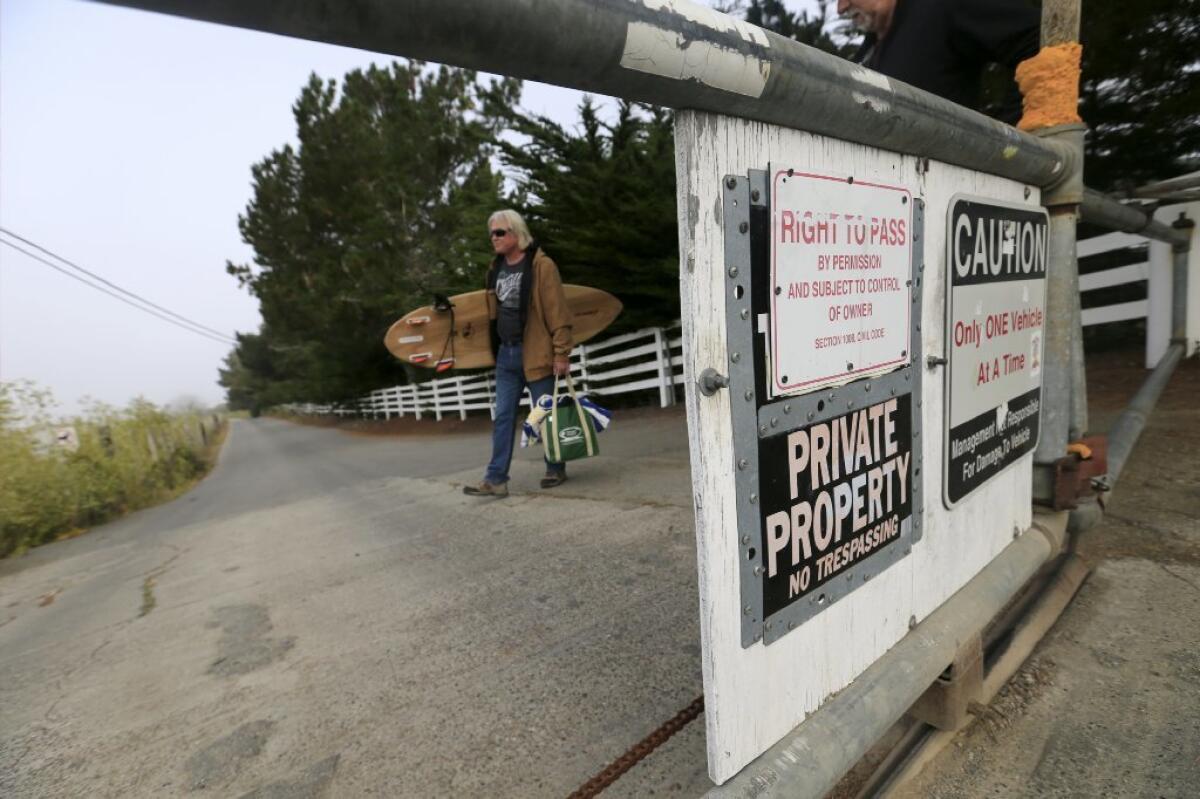
A number of public interest groups have since sued Khosla. He, in turn, has sued the California Coastal Commission, the State Lands Commission and San Mateo County, over what he considered an interference of his property rights.
A San Mateo County Superior Court judge, however, dismissed his case, stating that he had to go through the commission’s permit process or enforcement proceedings before he could resort to a lawsuit.
The case that could be heard by the U.S. Supreme Court began when Surfrider sued Khosla on the grounds that he failed to apply for the development permit required to change public access to the coastline. A local court sided with Surfrider and a state appeals court upheld that decision, ordering Khosla to unlock the gate while the dispute continues. Khosla appealed again to the state Supreme Court, which declined to hear the case.
Nowadays, the gate is sometimes open, sometimes closed. Sheriff’s officials have said they would not arrest members of the public for trespassing. The Coastal Commission last fall began the formal process of notifying Khosla of public access violations, which could amount to fines of as much as $11,250 per day per violation.
The commission, not an official party to the Surfrider suit, said it is reviewing Khosla’s appeal to the Supreme Court. The state attorney general’s office said it was aware of the petition and provided no additional comment.
Khosla is not the first wealthy landowner to challenge coastal regulations. Many still recall the 22-year fight with music producer David Geffen to unlock his Malibu gate. (Geffen eventually handed over the keys).
But not all fights have ended in public victory. When the Coastal Commission demanded in the 1980s that James and Marilyn Nollan allow the public to walk on their beachfront in Ventura in exchange for obtaining a building permit to enlarge their house, the Supreme Court ruled the agency had gone too far.
In handing down the 1987 Nollan vs. California Coastal Commission decision, Scalia compared the commission’s tactics to “an out-and-out plan of extortion.” The first of a number of rulings in which the court tilted the law toward protection of property rights, it dramatically scaled back the commission’s power to require public access ways to the coast.
“Nollan had a catalytic effect, and I expect any decision in the Martins Beach case … would have a similar sweeping and catalytic effect on public access law and property rights more generally,” Frank said. “It’s one of those landmark foundational cases that is cited all the time throughout the nation and has prompted more litigation.”
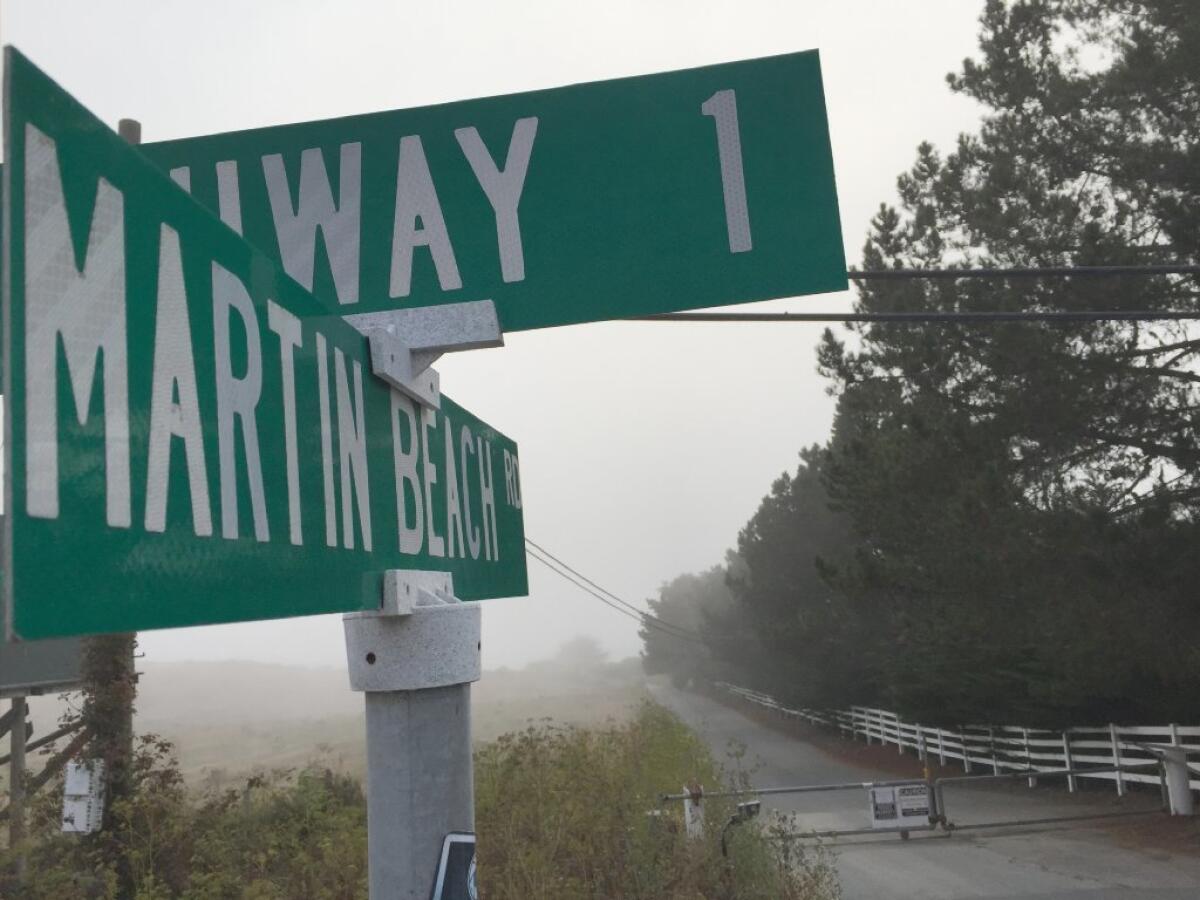
Ralph Faust, who was the commission’s general counsel from 1986 to 2006, said a striking difference between the Nollan case and Martins Beach is that Khosla is challenging the Coastal Act “as written, not as it’s applied.”
Nollan applied for a permit but didn’t like the stipulations the commission required, so he challenged them, Faust said. Khosla is skipping that step altogether and arguing that the requirement to seek a permit — as well as the state court injunction to maintain the status quo of keeping the gate open while the matter is being decided — violates his rights as a property owner.
“That’s a pretty stunningly broad attack on state government,” Faust said. “If he were to win on that and just get a declaration that the Coastal Act could not possibly be constitutionally interpreted to require a permit for that kind of development — that would be just huge.”
The Nollan case unfolded in unexpected ways and to this day affects the way access rights are argued and how land should be set aside for the public, Faust said. Should the Supreme Court take up Khosla’s appeal, the implications are beyond imaginable.
“Just because you think you know what the situation is when you’re talking about a case, doesn’t mean that’s how it’s going to look if the Supreme Court actually decides something,” he said.
“These things take on a life of their own.”
Interested in coastal issues? Follow @RosannaXia on Twitter.
UPDATES:
2:25 p.m.: This article was updated with additional details of the history of the legal dispute involving Martins Beach.
This article was originally published at 5 a.m.
More to Read
Sign up for Essential California
The most important California stories and recommendations in your inbox every morning.
You may occasionally receive promotional content from the Los Angeles Times.
